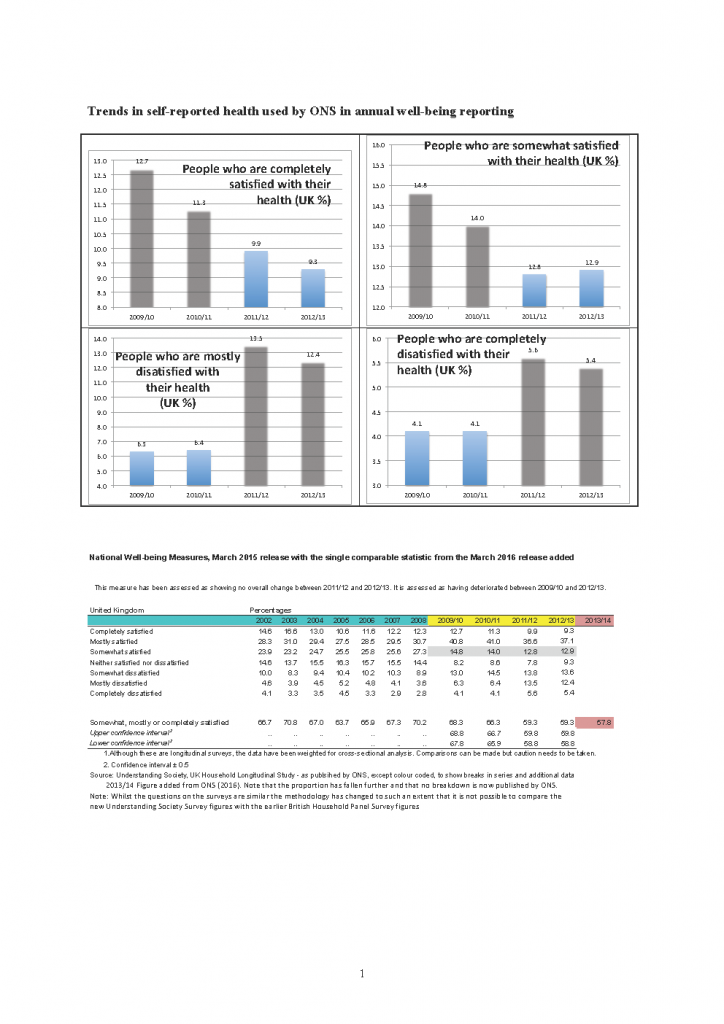May and Cameron have a terrible record on health, and it could be cutting lives short

Life expectancy in the UK has stalled. In many places, and for more vulnerable groups, it is now falling – on-line report in the New Statesman (March 2nd 2018). On March 1st 2018 the Office for National Statistics produced a report that revealed:
“The changes in life expectancy and healthy life expectancy between 2011 to 2013 and 2014 to 2016 were generally most favourable among those living in the least deprived 10% of areas in both countries. There were noticeable falls in female life expectancy at birth in the 20% most deprived populations in England. The growth in the inequality in life expectancy was a result of more favourable longevity gains among less deprived populations.”
Between them, David Cameron and Theresa May have managed to secure the worst health record of any post-war prime ministers. Life expectancy in the UK has stalled. In many places, and for more vulnerable groups, it is now falling. No other country in Europe has had such a bad record in health between the years 2010 and 2018. It is not just the elderly who are suffering, although the large majority of untoward deaths are in this group, it has also been people of working age, especially those who have had their disability benefits slashed, and infant mortality rates in the UK have risen for children born into poorer families.
The recent UK health record is not only awful in terms of rising mortality for some groups, ranging from poorer babies to elderly women, but also in declining mental health. Some of greatest declines in mental health have been for people who are so ill that they required government employment and support allowance to survive with any decency. By 2016 over 40 per cent of this group between the ages of 16 and 64 and living in England were known to have made suicide attempts in recent years [1].
Epidemiological studies have shown that new more stringent government tests result in an additional six suicides a year for every 10,000 people re-assessed in an area, an unknown (but of course much higher) increased number of suicide attempts, and many times more suicidal thoughts [2].
British politicians who have held power since 2010 are trying to impose the US model by stealth. This results in poor health in the US, with little “regulation over powerful food and drug companies blinded by greed and arrogance”, according to Columbia University’s Jeffrey Sachs [3].
More and more British health services are now “delivered” by “private providers”. More and more state facilities are now run by private companies.
Those who suffer the most are the weakest and least powerful. The number of prisoners who have died in custody each year has increased by over 60 per cent since the Conservatives first came to power as part of a coalition in 2010. At the same time deaths among patients with mental illness have increased by more than 200 per cent between 2011 and 2016 and may soon be greater each year than the number in prisons.
The NHS Winter Crisis
Reports of “third world conditions” in NHS hospitals dominated the media this winter. Pictures of ambulances queuing outsides A&Es and patients lying on floors in corridors confirmed the fears many leading medics and academics had warned of: the NHS was not sufficiently funded to be able to respond to a surge in demand.
read more
Notes
[1] McManus, S., Bebbington, P., Jenkins, R., Brugha, T. (eds.) (2016) Mental health and wellbeing in England: Adult Psychiatric Morbidity Survey 2014, Leeds: NHS Digital, Figure 12j, p.310
[2] Barr, B., Taylor-Robinson, D., Stuckler, D., Loopstra, R., Reeves, A., Whitehead, M. (2016) ‘First, do no harm’: are disability assessments associated with adverse trends in mental health? A longitudinal ecological study, Journal of Epidemiology and Community Health, 70, 339-345.
[3] Sachs, J., America’s health is declining — and corporations are stoking this crisis, CNN, December 27th 2017.

Trends in UK self-reported health